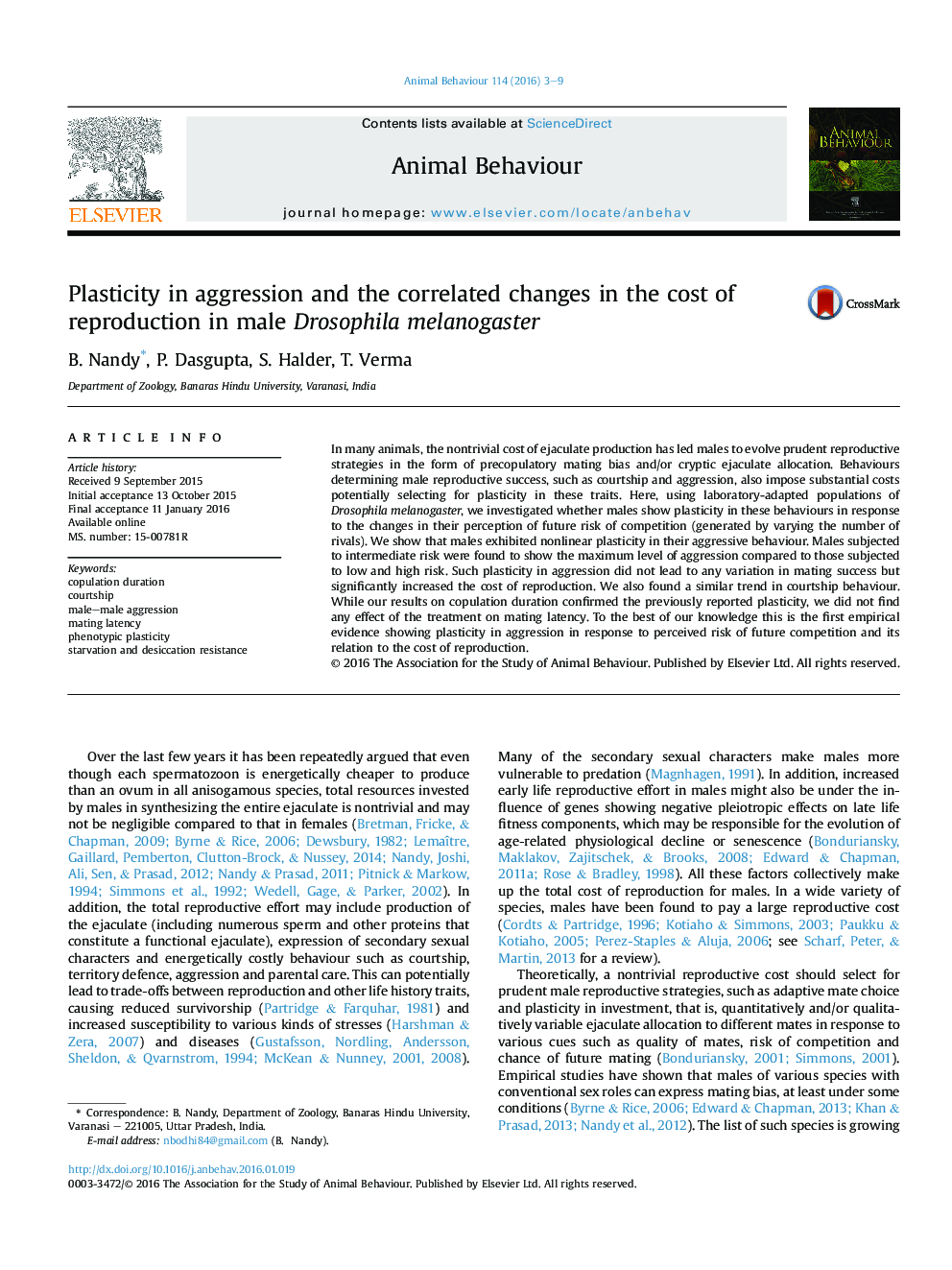| Article ID | Journal | Published Year | Pages | File Type |
|---|---|---|---|---|
| 8489151 | Animal Behaviour | 2016 | 7 Pages |
Abstract
In many animals, the nontrivial cost of ejaculate production has led males to evolve prudent reproductive strategies in the form of precopulatory mating bias and/or cryptic ejaculate allocation. Behaviours determining male reproductive success, such as courtship and aggression, also impose substantial costs potentially selecting for plasticity in these traits. Here, using laboratory-adapted populations of Drosophila melanogaster, we investigated whether males show plasticity in these behaviours in response to the changes in their perception of future risk of competition (generated by varying the number of rivals). We show that males exhibited nonlinear plasticity in their aggressive behaviour. Males subjected to intermediate risk were found to show the maximum level of aggression compared to those subjected to low and high risk. Such plasticity in aggression did not lead to any variation in mating success but significantly increased the cost of reproduction. We also found a similar trend in courtship behaviour. While our results on copulation duration confirmed the previously reported plasticity, we did not find any effect of the treatment on mating latency. To the best of our knowledge this is the first empirical evidence showing plasticity in aggression in response to perceived risk of future competition and its relation to the cost of reproduction.
Related Topics
Life Sciences
Agricultural and Biological Sciences
Animal Science and Zoology
Authors
B. Nandy, P. Dasgupta, S. Halder, T. Verma,
